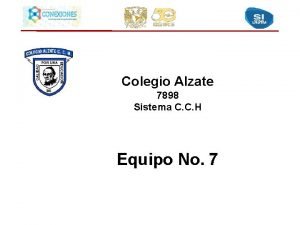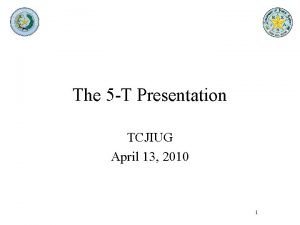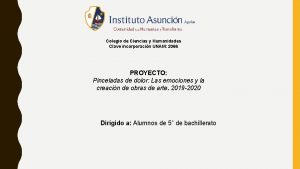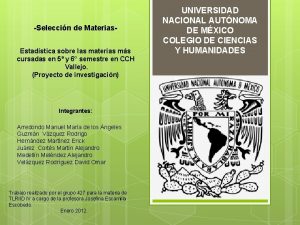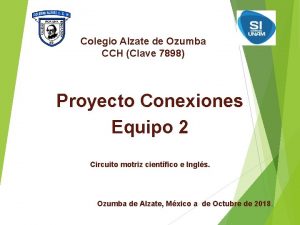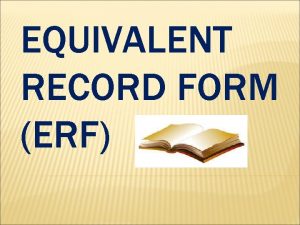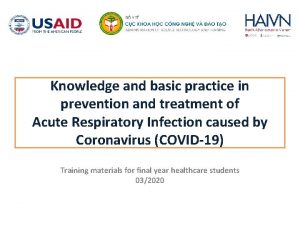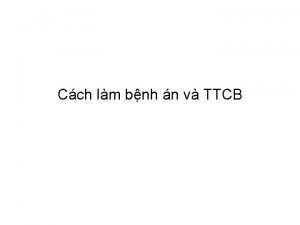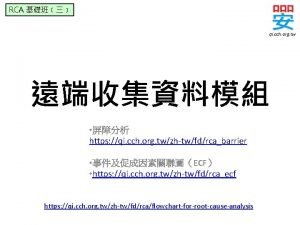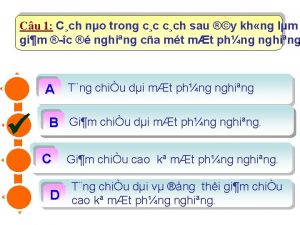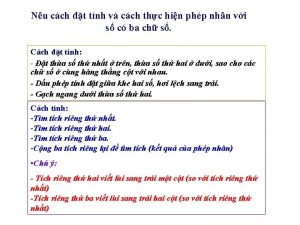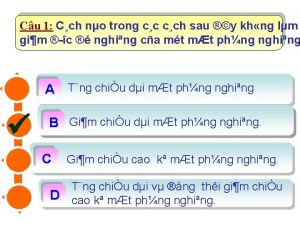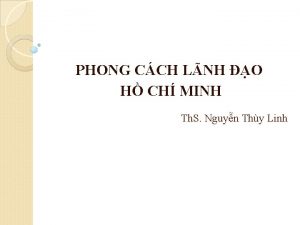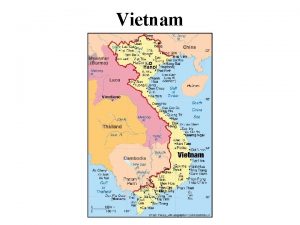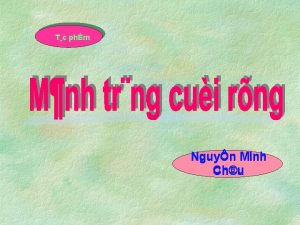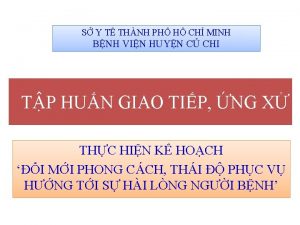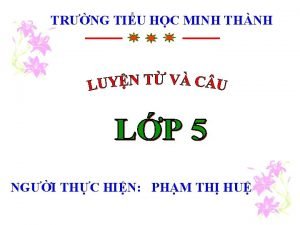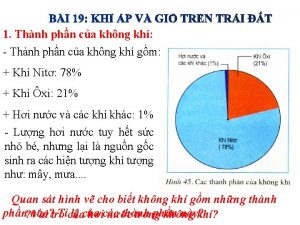Teacher L Th Minh Hu Cch thnh lp


























- Slides: 26

Teacher: Lê Thị Minh Huế


*Cách thành lập cụm danh từ 1. S(person) + tobe + adj => one’s + N/ being adj Ex: I was very tired = my tiredness/ being tired 2. S(person) + tobe + adv + adj => one’s + adj + N Ex: He is seriously ill = his serious illness 3. S(person) + V + (O) => one’s + N + (O) Ex: He helps me = his help Mary advised me = Mary’s advice

4. S(person) + V + adv => one’s + adj + N Ex: He arrived early = His early arrival Hung treats me badly = His bad treatment 5. S(person) + V => one’s + V-ing Ex: He got up late = His getting up late 6. S(thing) + tobe + adj => A/An/The/one’s…+adj + N Ex: The house is big = The big house

Although / though/eventhough / despite / in spite of Mặc dù Nguyên tắc chung cần nhớ là : + Although/eventhough + clause(mệnh đề)(S+V) + Despite / in spite of + noun(danh từ)/noun phrase (cụm danh từ) or verb-ing

1) Nếu chủ từ 2 mệnh đề giống nhau: -> Bỏ chủ từ , đưa động từ về nguyên mẫu rồi thêm ING. Ex: Although Tom got up late, he got to school on time. => Despite / in spite of getting up late, Tom got to school on time. 2) Nếu chủ từ là danh từ + be + tính từ -> Đem tính từ đặt trước danh từ, bỏ tobe Ex: Although the rain is heavy, . . . . => Despite / in spite of the heavy rain, . . .

3) Nếu chủ từ là đại từ + be + tính từ : -> Đổi đại từ thành sỡ hửu , đổi tính từ thành danh từ , bỏ tobe Ex: Although He was sick, . . . . => Despite / in spite of his sickness, . . . . 4) Nếu chủ từ là đại từ + động từ + trạng từ -> Đổi đại từ thành sở hữu, động từ thành danh từ , trạng từ thành tính từ đặt trước danh từ Ex: Although he behaved impolitely, . . . => Despite / in spite of his impolite behavior

5) Nếu câu có dạng : there be + danh từ - >Thì bỏ there be Ex: Although there was an accident , . . . => Despite / in spite of an accident, . . . 6) Nếu câu có dạng : It (be) + tính từ về thời tiết ->Đổi tính từ thành danh từ thêm the phía trước. Ex: Although it was rainy, . . . => Despite / in spite of the rain, ………. Các tính từ và danh từ thường gặp trong mẫu này Foggy => fog ( sương mù ) Snowy => snow (tuyết) Rainy => rain (mưa) Stormy => storm ( bão)

7) Nếu câu có dạng: Danh từ + (be) + p. p ( câu bị động) => Đổi p. p thành danh từ, thêm the phía trước và of phía sau, danh từ câu trên đem xuống để sau of Ex: Although television was invented, . . . => Despite / in spite of the invention of television, ………

Complete the sentences, using although, despite/in spite of. although 1. ______ the story of the film was good, I didn’t like the acting. In spite of 2. I went to see the film ______ feeling really tired. 3. I really enjoyed the Water War______ although most of my friends said it wasn’t a very good film. In spite of careful preparation, they had a lot of 4. ______ difficulties in making the film. 5. ______ although the film was gripping, Tom slept from beginning to end.

Exercises: 1. Although she was ill, she went to school. -> In spite of being ill, she went to school 2. She didn’t eat much though she was hungry. ->Despite being hungry, she didn’t eat much 3. I accepted the job although the salary was low. -> In spite of the low salary, I accepted the job 4. He didn’t leave school even though his family was poor. -> Despite his poor family, he didn’t leave school. 5. Eventhough it was rainy, I went swimming. -> In spite of the rain, I went swimming

QUY TẮC CHUYỂN TỪ "BECAUSE" SANG "BECAUSE OF". 1: Nếu thấy 2 chủ ngữ giống nhau thì bỏ chủ ngữ gần Because, động từ thêm "ing". Ex: Because Nam is tall, he can reach the book on the shelf. => Because of being tall, Nam can reach the book on the shelf. 2: Nếu thấy chỉ còn lại danh từ thì chỉ việc giữ lại danh từ mà dùng. Ex: Because there was a storm, . . . => Because of the storm, . . . - Sau khi bỏ "there", bỏ "to be" (was) chỉ còn lại danh từ => chỉ việc lấy mà dùng. 3: Nếu thấy có danh từ và tính từ thì đưa tính từ lên trước danh từ, còn lại bỏ hết. Ex: Because the wind is strong, . . . => Because of the strong wind, . . . - Sau khi bỏ "to be" (is) thấy có danh từ và tính từ nên ta chỉ việc đưa tính từ lên trước danh từ. 4: Nếu thấy chỉ có mình tính từ => đổi nó thành danh từ Ex: Because it is windy, . . . => Because of the wind, . . . 5: Nếu thấy có sở hữu lẫn nhau => Dùng danh từ dạng sở hữu Ex: Because I was sad, . . => Because of my sadness, . . . Ex: Because he acted badly, . . . => Because of his bad action, . . . (trạng từ đổi thành tính từ) *The fact that Because he is tall, he can reach the book on the shelf. => Because of the fact that he is tall, . . .

Exercises: 1. Because Hoa was rich, she could buy that house. => Because of ………………………. . being rich, she could buy that house 2. Because the rain was so heavy, I couldn't go camping. => Because of……………………… the heavy rain, I couldn’t go camping 3. His father asked him to stay at home because he was sick. => Because of …………………………. being sick, his father asked him to stay at home. 4. Because there was an accident, I was late. the accident, I was late => Because of …………………………. 5. She failed the University entrance exam because her grades were bad. => Because of …………………………. . her bad grades, she failed the University entrance exam 6. Because of the cheap price, my wife insists on buying the TV. => Because ……………………………. the price wifeexam. insists on buying the TV 7. Because I studied hard, is. Icheap, my passed the => Because of ………………………. . . my hard studying, I passed the exam

I. Định nghĩa mệnh đề quan hệ: Mệnh đề (Clause) là một phần của câu, nó có thể bao gồm nhiều từ hay có cấu trúc của cả một câu. Mệnh đề quan hệ dùng để giải thích rõ hơn về danh từ đứng trước nó. Ex 1: The woman who is wearing the T-shirt is my girlfriend. Trong câu này phần được viết chữ nghiêng được gọi là một relative clause, nó đứng sau “the woman” và dùng để xác định danh từ đó. Nếu bỏ mệnh đề này ra chúng ta vẫn có một câu hoàn chỉnh: The woman is my girlfriend. Ex 2: The girl is Nam's girlfriend. She is sitting next to me. =>The girl who is sitting next to me is Nam's girlfriend. Mệnh đề quan hệ thường được nối với mệnh đề chính bằng các đại từ quan hệ (relative pronouns): who, whom, which, whose, that. . . Mệnh đề quan hệ có hai loại: mệnh đề quan hệ xác định và mệnh đề quan hệ không xác định

II. Các loại mệnh đề a. Mệnh đề xác định (Defining relative clauses) - Là mệnh đề được dùng để xác định danh từ đứng trước nó, cần thiết cho ý nghĩa của câu; không có nó câu sẽ không đủnghĩa. Tất cả các đại từ quan hệ được sử dụng trong mệnh đề xác định. Ex: Do you know the name of the man who came here yesterday? Ex: The man (whom / that) you met yesterday is coming to my house for dinner. ➨ Mệnh đề xác định không có dấu phẩy b. Mệnh đề không xác định (Non – defining clauses) - Là mệnh đề cung cấp thêm thông tin về người hoặc vật, không có nó thì câu vẫn đủ nghĩa. Ex : Miss Hoa, who taught me English, has just got married. ➨ Mệnh đề không xác định có dấu phẩy và Mệnh đề này không được dùng “That”

III. Các dạng mệnh đề Quan hệ A. Relative Pronouns (Đại từ quan hệ) Who: Làm chủ ngữ, đại diện ngôi người Ex: I told you about the woman who lives next door. Which: Làm chủ ngữ hoặc tân ngữ, đại diện ngôi đồ vật, động vật. Bổ sung cho cả câu đứng trước nó Ex: Do you see the cat which is lying on the roof? He couldn’t read which surprised me Whose: Chỉ sở hữu cho người và vật Ex: Do you know the boy whose mother is a nurse? Whom: Đại diện cho tân ngữ chỉ người Ex: I was invited by the professor whom I met at the conference. That: Đại diện cho chủ ngữ chỉ người, vật, đặc biệt trong mệnh đề quan hệ xác định (who, which vẫn có thê sử dụng được) Ex: I don’t like the table that stands in the kitchen

• Các đại từ quan hệ: 1. WHO: • - Làm chủ từ trong mệnh đề quan hệ • - Thay thế cho danh từ chỉ người • …. . N (person) + WHO + V + O • Ex: The woman who lives next door is a doctor. • 2. WHOM: • - làm túc từ cho động từ trong mệnh đề quan hệ • - thay thế cho danh từ chỉ người • …. . N (person) + WHOM + S + V • Ex: George is a person whom I admire very much • 3. WHICH: • - làm chủ từ hoặc túc từ trong mệnh đề quan hệ • - thay thế cho danh từ chỉ vật • …. N (thing) + WHICH + V + O • …. N (thing) + WHICH + S + V • The machine which broke down is working again now

4. THAT: • Mệnh đề quan hệ xác định: • Là mệnh đề cần phải có trong câu, nếu bỏ đi mệnh đề chính sẽ không có nghĩa rõ ràng. Đối với loại câu này, đại từ quan hệ làm tân ngữ có thể được bỏ đi. Ta có thể dùng từ that thay thế cho who, whom, which. . . • Ex: This is the book that I like best. • Mệnh đề quan hệ không xác định: • Trước và sau mệnh đề này phải có dấu (, ). Trường hợp này ta KHÔNG ĐƯỢC dùng từ “that” thay thế cho who, whom, which và không được bỏ đại từ quan hệ trong mệnh đề này. Ex 1: My father is a doctor. He is fifty years old • ➨ My father, who is fifty years old, is a doctor. Ex 2: Mr Brown is a very nice teacher. We studied English with him. ➨ Mr Brown, who(m) we studied English with, is a very nice teacher.

Trường hợp bắt buộc dùng that và không được dùng that: Trường hợp phải dùng that: sau một danh từ hỗn hợp (vừa chỉ người, vừa chỉ vật hoặc đồ vật). Ví dụ: We can see a lot of people and cattle that are going to the field - Sau đại từ bất định: Ex: I’ll tell you something that is very interesting. - Sau các tính từ so sánh nhất, ALL, EVERY, ONLY: Ex: This is the most beautiful dress that I have. All that is mine is yours. You are the only person that can help us. - Trong cấu trúc It + be + … + that … (chính là …) Ex: It is my friend that wrote this sentence. (Chính là bạn tôi đã viết câu này. ) Trường hợp không dùng that: mệnh đề có dấu (, ), ĐTQH có giới từ đứng trước. Lưu ý: giới từ chỉ đứng trước whom và which, không đứng trước who và that Ex: Peter, who/whom I played tennis with on Sunday, was fitter than me. Or: Peter, with whom I played tennis on Sunday, was fitter than me. Not: Peter, with who I played tennis on Sunday, was fitter than me. 5. WHOSE: Đại từ dùng để chỉ sở hữu cho danh từ chỉ người hoặc vật, thường thay cho các từ: her, his, their, hoặc hình thức ‘s …. . N (person, thing) + WHOSE + N + V …. Ex: I met someone whose brother I went to school with

B. Relative adverb (Trạng từ quan hệ) Trạng từ quan hệ có thể được sử dụng thay cho một đại từ quan hệ và giới từ. Cách làm này sẽ làm cho câu dễ hiểu hơn. Ex: This is the shop in which I bought my bike. ➨ This is the shop where I bought my bike. When in/on which : Đại diện cho cụm thời gian Ex: The day when we met him Where in/at which : Đại diện cho nơi chốn Ex: The place where we met him Why for /which: Đại diện cho lí do The reason why we met him

1. WHY: Trạng từ quan hệ why mở đầu cho mệnh đề quan hệ chỉ lý do, thường thay cho cụm for the reason, for that reason. …. . N (reason) + WHY + S + V … Ex 1: I don’t know the reason. You didn’t go to school for that reason. → I don’t know the reason why you didn’t go to school. Ex 2: I don't know the reason. You didn't go to school for that reason. =>I don't know the reason why you didn't go to school. 2. WHERE: Trạng từ quan hệ để thay thế cho các từ/cụm từ chỉ địa điểm, nơi chốn. …. N (place) + WHERE + S + V …. (WHERE = ON / IN / AT + WHICH) Ex 1: a/ The hotel wasn’t very clean. We stayed t that hotel. → The hotel where we stayed wasn’t very clean. Ex 2: This is my hometown. I was born and grew up here. => This is my hometown where I was born and grew up. Ex 3: The restaurant where we had Lunch was near the airport.

• 3. WHEN: • Là trạng từ quan hệ để thay thế cho cụm từ/từ chỉ thời gian. • …. N (time) + WHEN + S + V … (WHEN = ON / IN / AT + WHICH) • Ví dụ 1: Do you still remember the day? We first met on that day. • ➨ Do you still remember the day when we first met? • ➨ Do you still remember the day on which we first met? • Ví dụ 2: I don’t know the time. She will come back then. • ➨ I don’t know the time when she will come back. • That was the day. I met my wife on this day. • ➨That was the day when I met my wife.

Fill in the blanks with WHO, WHICH or THAT: 1. The men _______ Who lives next-door are English. 2. The dictionary _______ Which you gave me is very good. 3. Do you know the girls _______ Who are standing outside the church? Who got into my 4. The police are looking for the thieve _______ house last night. which you like comes from the United 5. The chocolate _______ States. Which my mother gave me on 6. I have lost the necklace _______ my birthday. 7. A burglar is someone _______ breaks into a house and that steals things. that 8. Buses _______ go to the airport run every half hour.

9. I can't find the key _______ opens this door. Which 10. I gave you a book _______ had many pictures. which 11. I don't like the boy _______ Sue is going out whom with. 12. Did you see the beautiful dress _______ which she wore yesterday. 13. The man _______ whom she is going to marry is very rich. which was robbed 14. This is the bank _______ yesterday. which made him look like 15. He wore a mask _______ Mickey Mouse.

Combine These Pairs Of Sentences Using Relative Pronouns: 1. The first boy has just moved. He knows the truth. • . . . The first boy who knows the. . . truth has just moved. 2. I don't remember the man. You said you met him at the canteen last week. • . . . . . . I don't remember the man whom you said you met at the canteen last week 3. The only thing is how to go home. It makes me worried. The only thing which makes me worried is how to go home. . . . • . . . . . . 4. The most beautiful girl lives city. I like her long hair very much. The most beautiful girl, whose long. . . hair I like very much, lives in this city. • . . . 5. He was Tom. I met him at the bar yesterday. • . . . . . . The man whom I met at the bar yesterday was Tom.

6. The children often go swimming on Sundays. They have much free time then. The children often go swimming on. . . Sundays when they have much free time. • . . . 7. They are looking for the man and his dog. They have lost the way in the forest. They're looking for the man and his dog that have lost the way in the forest. • . . . . . . 8. The tree has lovely flowers. The tree stands near the gate of my house. tree which stands near the gate of. . . my house has lovely flowers. • The. . . . 9. My wife wants you to come to dinner. You were speaking to my wife • . . . . . . My wife, whom you were speaking to, wants you to come to dinner. 10. The last man has just returned from the farm. I want to talk to him at once. I want to talk to the last man who has just returned from the farm.
 Cch studio
Cch studio Citační norma ččh
Citační norma ččh Colegio alzate cch ozumba
Colegio alzate cch ozumba Omnixx login
Omnixx login Mdm sms report
Mdm sms report Clave cch azcapotzalco
Clave cch azcapotzalco Westlaw cost per search
Westlaw cost per search Triad cch color
Triad cch color Cch sur clave
Cch sur clave Ifta audit manual
Ifta audit manual Seleccion de materias cch sur
Seleccion de materias cch sur Citační norma ččh
Citační norma ččh Colegio alzate cch ozumba
Colegio alzate cch ozumba Fp solutions financial planning software
Fp solutions financial planning software Good afternoon student
Good afternoon student Erf deped requirements
Erf deped requirements Ho chi minh 1945
Ho chi minh 1945 đọc hiểu mẹ-trần quốc minh
đọc hiểu mẹ-trần quốc minh Dr minh mai
Dr minh mai để nguyên nước chấm cổ truyền
để nguyên nước chấm cổ truyền What did the vietminh declare as its goal
What did the vietminh declare as its goal Covid ho chi minh city
Covid ho chi minh city Giêsu chúng con tới đây sấp mình
Giêsu chúng con tới đây sấp mình Bao minh insurance corporation
Bao minh insurance corporation Ho chi minh city technical and economic college
Ho chi minh city technical and economic college Chứng minh định lý kuratowski
Chứng minh định lý kuratowski Hong minh
Hong minh


